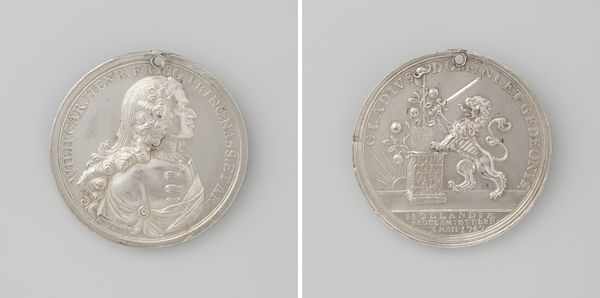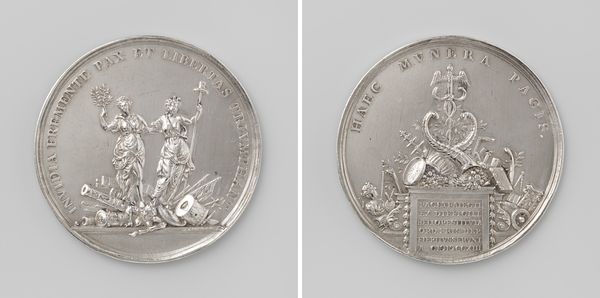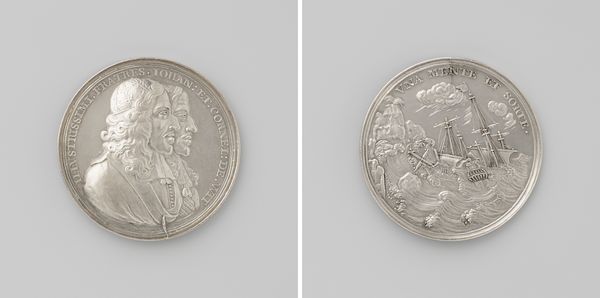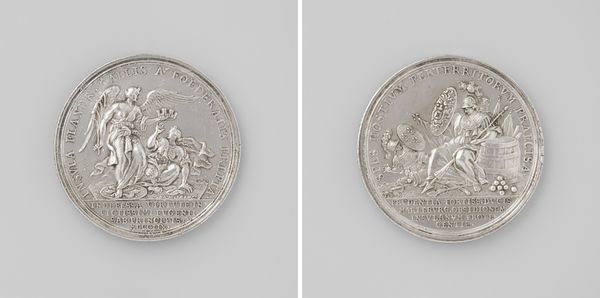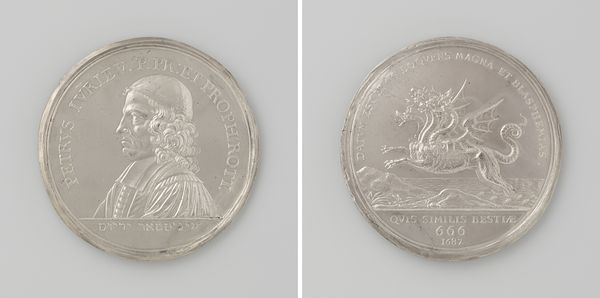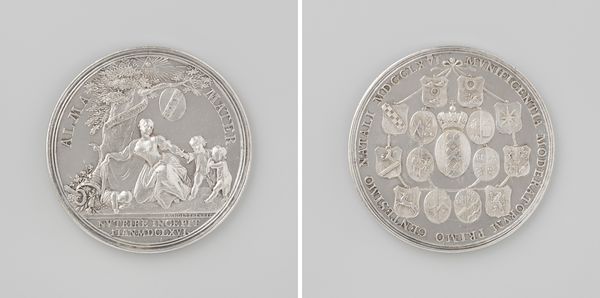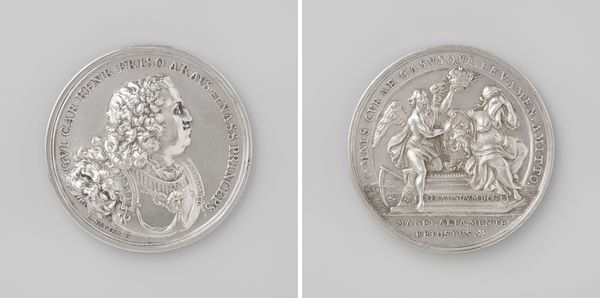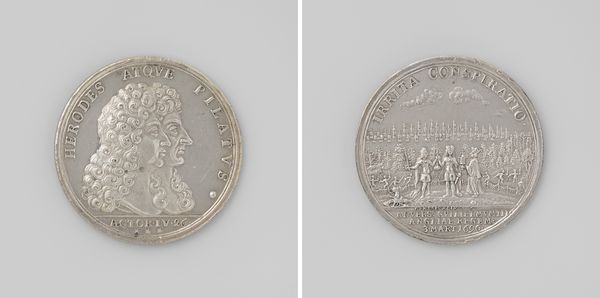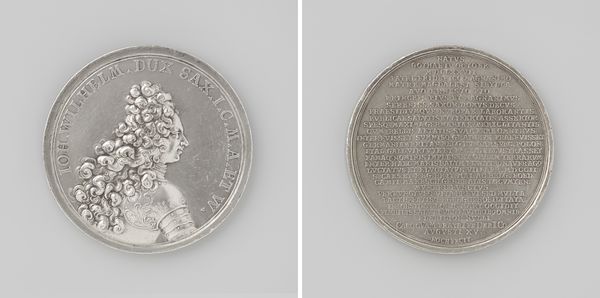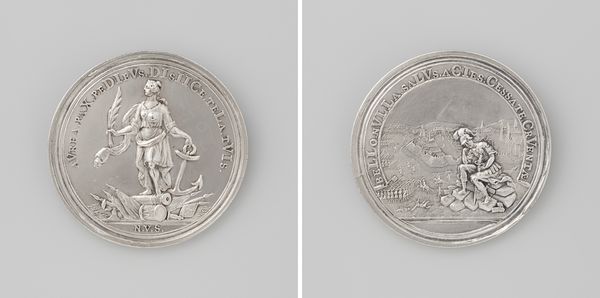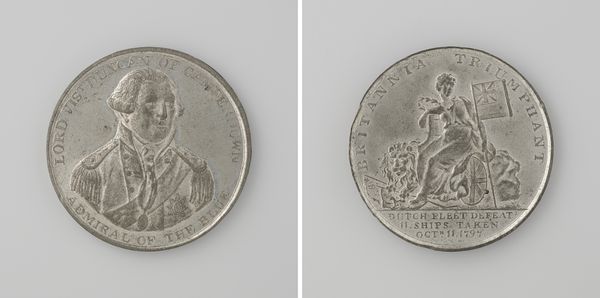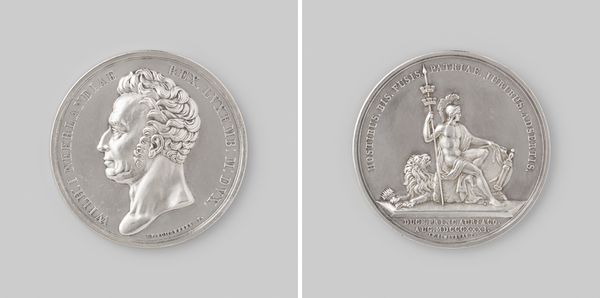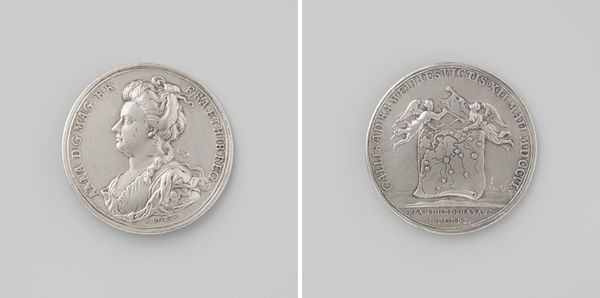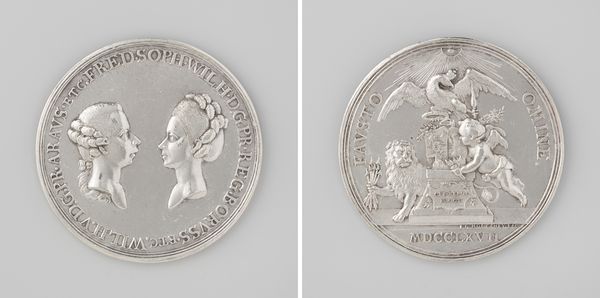
silver, metal, engraving
#
portrait
#
silver
#
baroque
#
metal
#
engraving
Dimensions: diameter 4.8 cm, weight 42.69 gr
Copyright: Rijks Museum: Open Domain
Editor: This is a fascinating object. It's a silver medal, engraved by Philipp Heinrich Müller in 1711, titled "Karel VI gekozen tot Duits keizer," commemorating Charles VI's election as Holy Roman Emperor. The precision is really impressive! One side features Charles’s portrait, the other a complex heraldic design. What can you tell me about it? Art Historian: Well, as an iconographer, I see far more than just a portrait and heraldry. Consider the symbolic weight here. What emotions does that doubling of the eagle evoke? Editor: Fear and majesty perhaps? The feeling that this Empire has far-reaching power? Art Historian: Exactly. Notice how this medal isn't simply a historical record; it's deliberate visual propaganda. Everything, from Charles' laurel wreath implying victory to the radiating light above the heraldic shields, reinforces a message of legitimacy and divinely sanctioned power. How do these symbols tap into pre-existing cultural memories of imperial authority? Editor: The eagle probably comes from Roman symbolism of power, as well as many other coats of arms from across Europe and beyond! I also note some imagery might play on biblical notions of divinely chosen leaders. The radiant light specifically brings that to mind. Art Historian: Precisely! Think about the psychology of repeated symbols. Every time someone encountered this medal, that visual language reinforced the Emperor's authority. Each carefully chosen symbol and stylistic detail echoes down through history, reinforcing a powerful ideal of Empire. I wonder how successful it would be now, when some might see the style as simply ‘old fashioned’. Editor: Fascinating! I came expecting to learn about Baroque portraiture but learned instead to 'decode' propaganda!
Comments
No comments
Be the first to comment and join the conversation on the ultimate creative platform.
